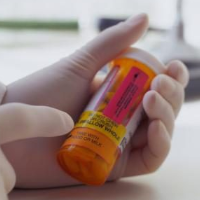FDA Accused of Bowing to Drug Industry Pressure in Delaying Generic Drug Risk Warning Labels
 (photo: Photodisc/Getty Images)
(photo: Photodisc/Getty Images)
By Katie Thomas, New York Times
WASHINGTON — The U.S. Food and Drug Administration has decided to put off until 2017 a decision about whether to require generic drugmakers to take more responsibility for warning patients about the risks of their products.
The development dismayed consumer groups and representatives for trial lawyers, who had urged the agency to close a legal loophole that prevents patients harmed by generic drugs from suing manufacturers.
“The FDA is plainly bowing to industry pressure and, in the process, prioritizing industry profits over patient health and safety,” said Dr. Michael Carome, director of the Public Citizen’s Health Research Group, which petitioned the agency to change the labeling process.
“At this point, we worry about the agency’s commitment to finalizing the rule, which it acknowledged in 2013 would improve drug safety.”
The makers of generic drugs, which lobbied heavily against the rule, said they were pleased with the delay because it allowed the agency more time to consider the matter. The Generic Pharmaceutical Association, an industry trade group, said the delay had the backing of physicians, pharmacists, hospitals and others.
“The FDA clearly appreciates the strong concerns articulated by a majority of health care experts, particularly those closest to patient prescribing,” said Chip Davis, the industry group’s chief executive.
In a statement about its decision, the FDA said only that its estimates about when rules would be completed were just that — “projected dates” — and that they “may be adjusted to reflect ongoing work on specific rules.”
In 2011, the Supreme Court ruled that generic drugmakers could not be held liable for failing to warn patients about the risks of their products because the companies had no control over what the warning labels said.
Brand-name drugmakers have a responsibility to change a label whenever they discover important new information about a drug, but generic manufacturers are required to follow suit only if the FDA agrees.
After the ruling, in a case known as Pliva v. Mensing (pdf), lower courts threw out dozens of lawsuits against generic drugmakers, placing some patients in legal limbo. People who had been harmed by a generic drug would be unable to sue even as those who had taken the brand-name version of the same product won million-dollar judgments.
Those people included the family of Kira Gilbert, who died in 2009 at age 22 of a heart attack after taking a generic version of the painkiller Darvon. The drug was withdrawn from the market in 2010 because it was linked to serious heart risks. Her family’s lawsuit against generic manufacturers of the drug was dismissed in 2012 because of the Supreme Court ruling.
Tammy Gilbert, Kira Gilbert’s mother, has been campaigning to change the rule. “It just kills me that they keep prolonging this, and I’m not even sure why,” she said. “Because she was on the generic form, her case has been dismissed, so nobody’s accountable for her death.”
In 2013, the FDA proposed changing the rules to “create parity” between generic and brand-name drugmakers for how they update their labels, exposing generic companies to legal liability if they failed to properly warn of a drug’s risks.
The generics industry objected, saying that such a change would create confusion because drugs that were equivalent could carry different warning labels.
The generic industry, in cooperation with its brand-name counterparts, proposed an alternative that would make the FDA the final arbiter of label changes. Doing so would make sense, they said, because only the agency had the full picture of a drug’s safety risks. Individual companies would know only about a limited number of patients.
But consumer advocates said the agency did not have the resources to keep track of all the drugs on the market.
To Learn More:
Are FDA Opioid Warning Labels Too Little Too Late? (by Matthew Perrone, Associated Press)
New FDA Painkiller Labeling Rules Seen as Good PR but Bad Medicine (by Noel Brinkerhoff and Danny Biederman, AllGov)
- Top Stories
- Unusual News
- Where is the Money Going?
- Controversies
- U.S. and the World
- Appointments and Resignations
- Latest News
- Musk and Trump Fire Members of Congress
- Trump Calls for Violent Street Demonstrations Against Himself
- Trump Changes Name of Republican Party
- The 2024 Election By the Numbers
- Bashar al-Assad—The Fall of a Rabid AntiSemite






Comments